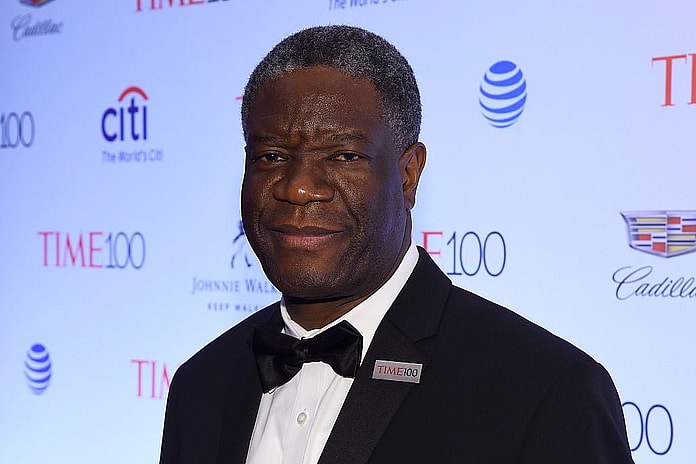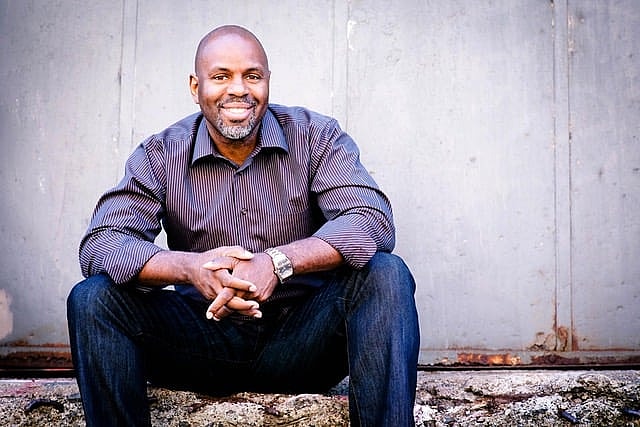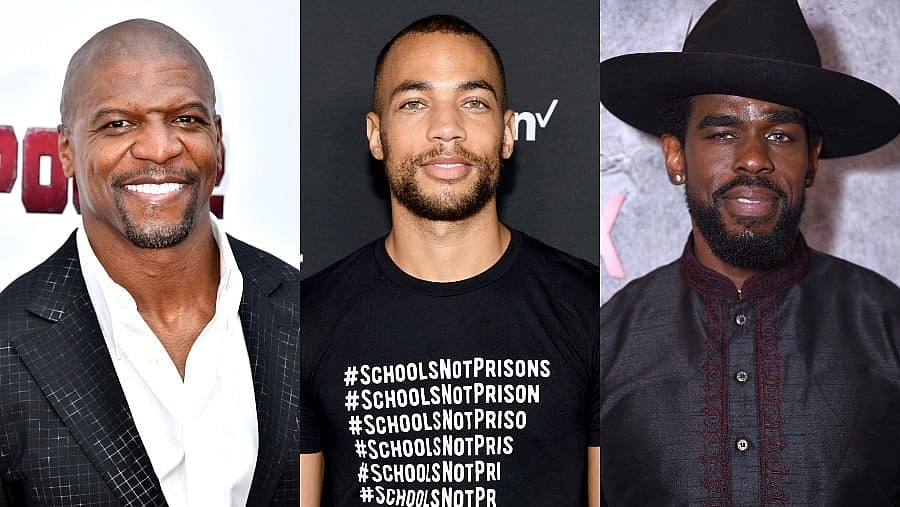There’s a question that keeps coming up in the midst of the #MeToo debate and that is “Where are all the Black men?” Just take one look at the comments on social media and you’ll see it’s hard to find Black men and women on the same side of the debate who agree about everything, including those women who fall on the side of rape apologists and Bill Cosby conspiracy theorists.
Not much attention has been given to those brothers who have vocally and unapologetically addressed rape culture. They have either acknowledged their own privilege and/or mistakes in the past or called on other men to do better. Rather than falling into the camp of #NotAllMen rape (an obvious and unhelpful stance), they’ve modeled what it truly means to be an ally to women.
We want to recognize those men from our community who are openly discussing the cause and effect of the #MeToo movement in substantial ways. Here are six prominent Black men who have chosen to use their platforms for a purpose, rather than folding into the privilege of silence.
READ MORE: Simone Biles slams anti-Nike tweet by Interim USA gymnastics leader
Kendrick Sampson
While Kendrick Sampson may be a new to Hollywood, the Insecure breakout star has wasted no time protesting issues with a purpose — and addressing rape culture through his social media head on:
“Why don’t we as a society believe women? It’s been proven over and over again that we should. We must. 1 in 3 women will be assaulted or raped in her lifetime. Anyone who doesn’t want to acknowledge this fact isn’t changing it. Sticking your head in the sand or covering your ears won’t change the reality,” writes Sampson who describes himself as an intersectional #RacialJustice activist.
“WE must change it. WE must undo the narrative that says “it was in his past,” or “what about his future?!” The narrative that suspends women in space and time, frozen. Because what about HER past? Her childhood? HER future? How this violation shapes it? Her every waking moment that carries memories and trauma in her body?”
Mysonne
https://twitter.com/MIYAYORADIO/status/1048724832727289856
Rapper Mysonne‘s was not only arrested protesting rape culture during the Brett Kavanaugh hearings, his perfect breakdown of the ways men benefit from sexism recently went viral in a tweet.
“It’s imperative that men don’t only stand with women, but they stand for women, and by standing for women, we have to acknowledge that there’s a culture of sexual violence—rape culture—that men have benefited from,” Mysonne said. ”For it to change, men have to change it. We all look at Kavanaugh, and we see some similarities with things that have happened in our lives.
“We’ve traumatized some women in a way that we might not even acknowledge because it’s normalized,” he continued. “I might not have raped a woman, but I’ve done something that may have traumatized her as a man.”
Terry Crews

Actor Terry Crews made headlines when he bravely spoke up about his own #MeToo moment as the subject of sexual harassment and groping by an agent. Not only has Crews testified before Congress and sued the agency for sexual assault, but he also is speaking up for other victims.
“I was really angry because these women were being discounted,” Crews told TIME magazine. “These women were being discarded. Their pain was just—it was nothing. I wanted to join in. I wanted to say something. I wanted to support. But I did have to let these women know they weren’t alone. And that I understood. My whole mission was to give them strength. Don’t accept the shame that people are giving you. Because that’s what it was. They were being shamed. They were being victimized again. I just couldn’t stand for it.”
Denis Mukwege

Denis Mukwege is a gynecologist in the Democratic Republic of Congo who won the 2018 Nobel Peace Prize for fighting to end sexual violence against women as a weapon of war. He founded a hospital to treat women who were brutalized—some raped and even shot with bullets in their genitals—treating 10,000 women over the years.
Gunmen even broke into his own home and held his daughters hostage in response to his activism.
“I may be the only one to whom they can express what they feel,” Mukwege told CNN. “Sometimes it’s important to help them heal psychologically and tell them: ‘You are not destroyed. They wanted to destroy you, but you are still a woman. You are a woman and you need to be strong.'”
Mustafa Shakir

Byron Hurt



